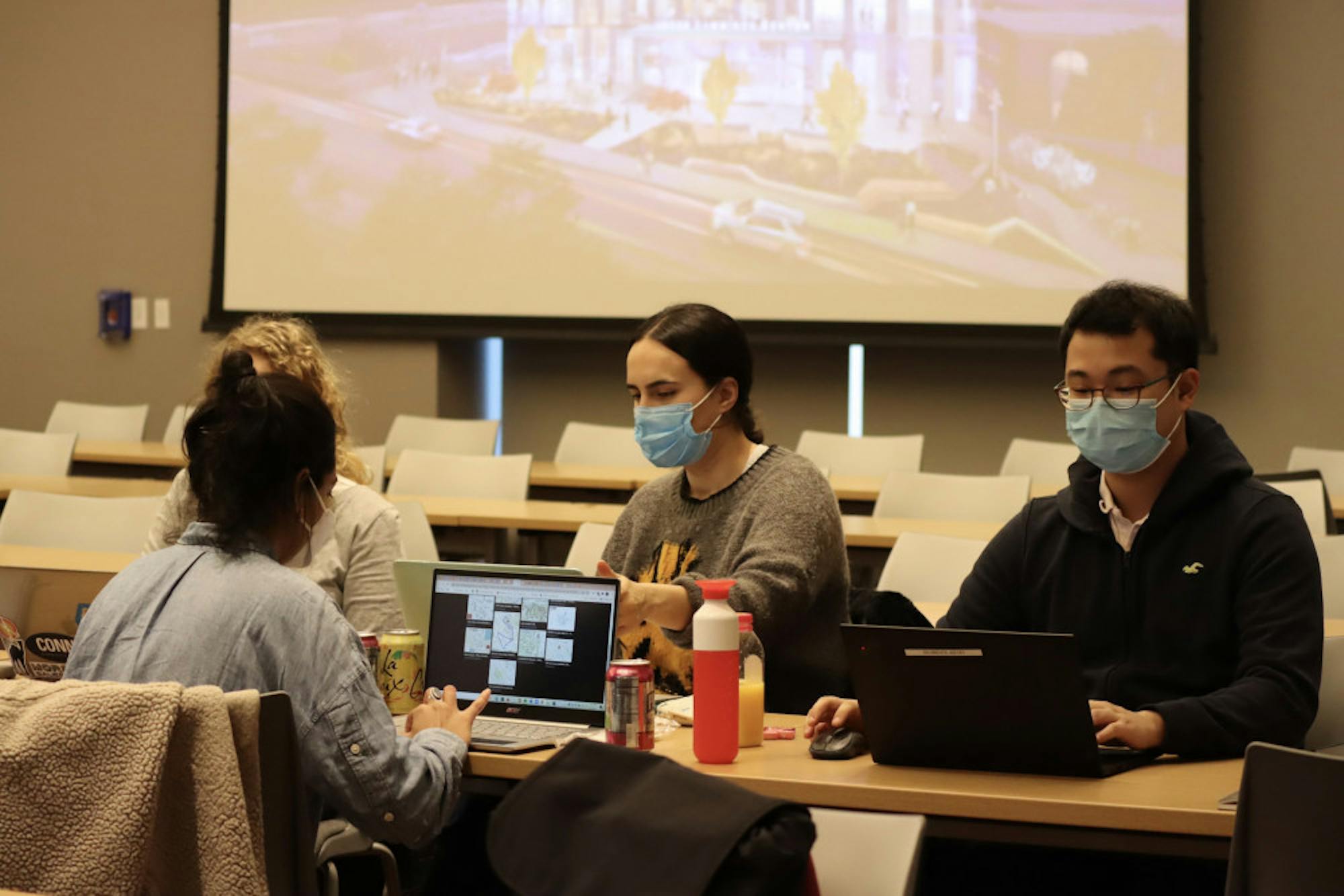On Feb. 11, the Data Intensive Studies Center launched its 2022 Art Datathon with a “What Does Feminist Data Science Look Like?” lecture from Catherine D’Ignazio, assistant professor of urban science and planning at MIT, director of the Data + Feminism Lab and co-author of the book “Data Feminism” (2020).
D’Ignazio explained how feminist scholarship can be utilized to create more fair and ethical data practices, especially for marginalized communities.
“‘Data Feminism’ … [is] a part of a growing body of work that’s looking to hold corporate and government actors accountable for basically making sexist, racist and classist data products,” D’Ignazio said. “So if you’ve been following the space at all, this is the space of algorithmic bias, fairness in artificial intelligence, ethics in machine learning.”
D'Ignazio explained that data science isn't necessarily neutral. Rather, it can be discriminatory and harmful.
“These are things like face detection systems that cannot see women of color, hiring algorithms that demote women’s resumes [and] child abuse detection algorithms that punish poor parents and many more examples” D'Ignazio said.
By providing these examples of harmful technological practices, D’Ignazio argued that data feminism is powerful.
“The basic argument that we make in the book is that intersectional feminism, when applied to the unequal balance of power in data science, can help that power be challenged, rebalanced and changed,” D’Ignazio said.
D’Ignazio noted that there are seven principles of data feminism: examining power, challenging power, rethinking binaries and hierarchies, elevating emotion and embodiment, embracing pluralism, considering context and making labor visible.
D'Ignazio illustrated the first principle, examining power, using “The Library of Missing Datasets” (2016), an art piece by Mimi Onuoha. The piece documents missing datasets that Onuoha has identified, D'Ignazio said.
“These are datasets that a reasonable person might expect to exist, but in fact, these are datasets that don’t exist — things like trans people killed or injured in instances of hate crimes, people excluded from public housing because of criminal records and so on,” D'Ignazio said.
Over a period of multiple years, Onuoha — whose background is in journalism — kept a running list for each time she would encounter a missing dataset. Onuoha inserted folders titled with the missing datasets into a white filing cabinet.
“You can go through the folders. … Of course, when you open up the folder, it’s empty,” D'Ignazio said. “The data are missing, there are no records in the data set. And so the point she is trying to make in this piece is that these datasets are missing for a reason.”
The absence of certain datasets can be attributed to societal power imbalances, D'Ignazio argued.
“This imbalance of power is what determines which data are collected and which are not; what research is conducted, what research is not; and who has the resources to undertake these things and who does not,” D'Ignazio said. “So governments have this power, money institutions have this power, minoritized groups and communities generally do not.”
D’Ignzaio explored the second principle of data feminism through the topic of femicide — gender-related killings of cis and trans women — in Mexico.
“[Femicide is] legally defined as crimes in a handful of countries, including Mexico, where this project was based,” D'Ignazio said. “However, even though there are laws on the books, the state does not systematically collect data on femicide.”
In “Data Feminism,”the second chapter explores Maria Salguero, a researcher who collected data on femicide in Mexico.
“[Salguero] assembled the most comprehensive public archive of femicide in the Mexican context,” D'Ignazio said. “She’s helped families locate loved ones, she’s provided data to journalists and NGOs and she’s actually been called in front of Mexico’s congress to testify several times.”
Salguero’s role in collecting data when the Mexican government did not is what D'Ignazio considers to be “counter data,” a powerful way to utilize data to go against the unfair balance of power.
At the end of her lecture, D’Ignazio answered participants’ questions, including one regarding how government agencies can trust feminist data to produce progress for communities.
“The interesting thing about the counter data that’s being produced by these alternately activists, feminist collectives, civil society groups, is that those data often become the most reliable source of information,” D’Ignazio responded. “They end up being statistics that are cited by the UN, … or the United States State Department … ends up citing the work by these women-led data organizations.”
Anna Haensch, a senior data scientist at the Tufts Data Intensive Studies Center, asked about the relationship between capitalism and data feminism.
“Capitalism is definitely at odds with data feminism,” D'Ignazio responded. “If by capitalism we mean an economic system that hoards resources for a very few number of people and externalizes social and collective costs of operations to the public, then of course — those disproportionately fall on the shoulders of more vulnerable and marginalized people. So that system, I think, is very incompatible with data feminism and with intersectional feminism more generally.”
The 2022 Art Datathon continued with a “Finding Bias in Museum Collections” panel, which featured Kelli Morgan, Diana Greenwald and Chad Topaz.






